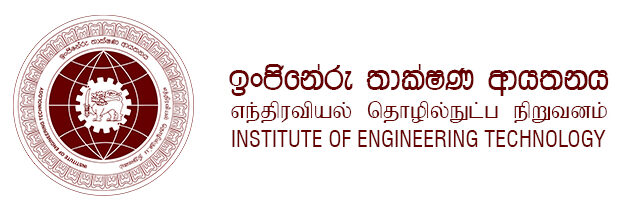History Of IET

The special engineering apprentice is a bread of engineering which finds its roots in the British colonial era where no universities or technical college in our country (the Ceylon). The British and local who owned the industrial were with the need to train their second generation to take over this family business. So they were sending through a special in plant training which is called apprenticeship. The early birds who lead the way as special apprentices has successfully become prominent engineers and has broken new ground in the countries engineering history and technological education.
This proven scheme of turning at eminent engineering has been practice in leading multidisciplinary engineering firms such as workers, browns and CGR and highway in public sector. Until early 1970 individual organization has followed their own standard and the theory part is covered at Ceylon technical college, with the establishment of national apprenticeship board (NAB) it took the shape of a standard engineering course with and overall syllabi and training modules coordinated and monitored by the NAB.
In late 1970 with introduction of the open economy, a large vacuum was created in field of engineering the conventional university output couldn’t fill the vacuum. It required technologies (or incorporated engineering) rather than conventional graduate engineering to fulfil this vacuum, a separate institute was established with the found and guidance of UNDP and ILO.
This time the special apprenticeship was redefined with some part introduced from the high tech training programs which were in developed industrial countries such as German and Australia. But the sprite of special apprenticeship is well provided.
Above mentioned need called for the establishment of separate institute for the purpose of imparting the theoretical components of training mainly due to the fact that the part time courses that were in existence were inadequate. Therefore the NAB initiated in the birth of TTI at Katunayake.
Finally it turned out to the most rational engineering course which procedures distinguished technologies to the countries industrial workforce. In 1990 it was recognized as “National Diploma in Engineering Sciences” (NDES).
The institute provides apprenticeship training on nine specializations in civil, electrical and mechanical through a period of four years to students who have completed their secondary education in mathematics stream. The institute has up-to-date facilities for education and training in modern technology with resources including well equipped workshop, laboratories, library, mini-computer system with terminals, auditorium, are sources center has well has student welfare services. Each year the program has the capacity to intake more than 400 students.
Special engineering apprentice who successfully completed the first phase of theory and industrial training components of the special apprentice course will be awarded the national diploma in engineering sciences (NDES) certificate. So far there are over 5000 NDES certificate holders who are working in key position in organization.
In 2006 the name of the institute changes from Technician Training Institute (TTI) to Institute of Engineering Technology (IET) on the request by previous cohorts of industrial experts.
